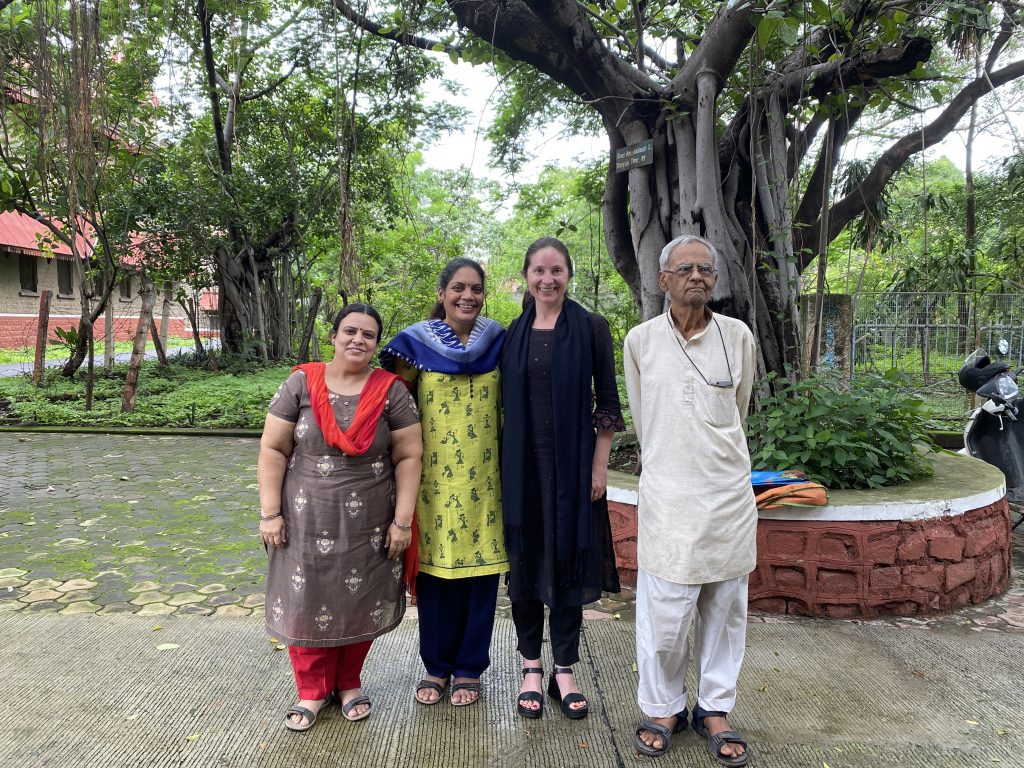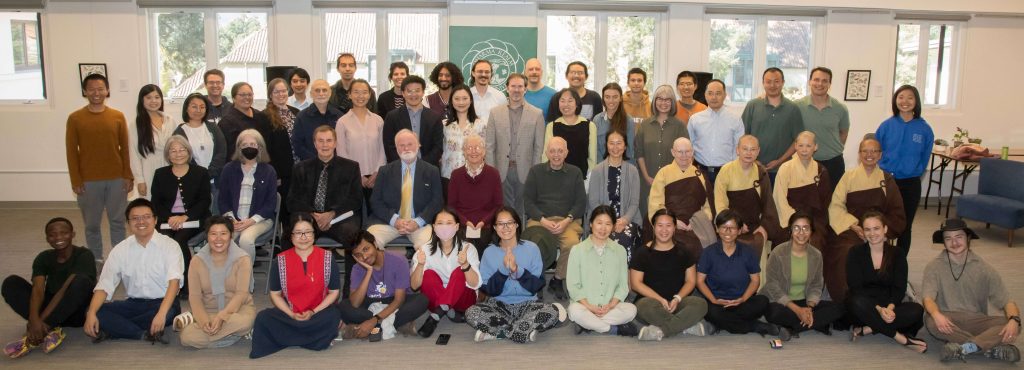DRBU alumna Grace Woo on how to listen for the Buddha in every language As a child, Grace Woo would wander the dark corridors of a Buddhist temple in Hong… The post Language as a Prism appeared first on Dharma Realm Buddhist University.
DRBU alumna Grace Woo on how to listen for the Buddha in every language
As a child, Grace Woo would wander the dark corridors of a Buddhist temple in Hong Kong. She was peeking through wooden doors, trying to get a glimpse of the Buddha inside. Looking back on her translation journey so far, she tells a story which continues that quest: trying to glimpse the Buddha’s meaning through the cracks of language.
Growing up in a strongly Catholic family, she visited the Buddhist temple because of her late grandmother. Every Chinese New Year’s Day, her family would go there to pay their respects to her ashes.
Years later, in a period when work had become very stressful, she was searching for a way to cope. “I was looking for a way to deal with it but didn’t want to do the commercial style mindfulness,” she says. Then, by coincidence, there was a Sri Lankan monk hosting Sunday Dharma talks right across the street from where she lived. She started attending, and one thing led to another.
Changing the Game
She had the experience that other approaches to stress relief only provided some temporary comfort: just enough to get fixed up to return to the usual dream of money and success, eventually leading back to exhaustion and feeling unfulfilled.
Reflecting upon how those Dharma talks resonated in a different way, she says that the Buddha’s teaching does not denounce the happiness derived from money and making a career, but does help her see that their benefit is only temporary. Doing anything with the wish to bring benefit to everyone, and doing it wholeheartedly, no matter what it is and where she is, changes the game.
Her journey eventually brought her to the City of Ten Thousand Buddhas and, a few years later, to the Translation Program at Dharma Realm Buddhist University.
A Door to Translation
Her path toward translation began quite literally with a door. One day, while walking by the Gold Wheel Monastery in Los Angeles, she noticed the door was closed but decided to ring the bell and give it a try. A nun came out and warmly invited her in, showing her the library. Learning that she was from Hong Kong, the nun asked, “Have you thought about translation?”
That question turned out to be a pivotal moment and the start of her journey volunteering for the Buddhist Text Translation Society (BTTS), and eventually joining DRBU’s Translation Program.
Her first translation project was reviewing Master Hua’s commentary on The Sixth Patriarch’s Platform Sutra. “I got seriously hooked!” she recalls. “I loved it so much I found myself spending all my free time working on it.”
She describes translation as a way of getting very close to the text: “You become so intimate with the words. They stick in the mind in a way that listening to a lecture doesn’t. Those words would unexpectedly pop up in my mind as I went on with my day and give me another way to look at things when I feel stuck.”
Triangulating Different Languages
English is the target language of her translations, yet her multilingual background, she says, is central to her understanding of Buddhist texts. Born and raised in colonial Hong Kong, she grew up speaking Cantonese at home and English at school. Later, she picked up Mandarin for work and, more recently, Classical Tibetan. She is particularly interested in triangulating different languages to unlock the meaning of Buddhist terms.
Take the word karma, for example. In English, it is often understood as some form of moral retribution: “Oh, I’ve done something bad and this is why this terrible thing is happening to me.” But the Chinese term ye 業 carries different shades of meaning. In modern Chinese, it can even refer to one’s career or business performance. Tibetan, she explains, offers another key: the word le (སྣང་) simply means action. “What I learned”, she says, “is that karma isn’t some mystical force that brings misfortune. It’s simply that you reap what you sow.”
A Bridge and a Barrier
Through years of translation, she has come to see language as both a bridge and a barrier. “The Buddha’s teaching can only be spoken to us with words, but language is a prism. The light of Buddha’s wisdom is transmitted, but also distorted in subtle ways.”
She tells how translation helps her see the advantages and limitations of different languages, and that ultimately, she needs to look beyond words and concepts to see what the Buddha is trying to say.
For instance, English requires a subject in every sentence. A simple Chinese greeting like “Eaten or not?” has to become “Have you eaten?” in English. “Adding a subject may not sound like a big deal, but personally I found it an obstacle. It makes this ‘I’ the action-packed, central character of the movie called ‘my life.’”
Some concepts, she adds, resist translation altogether. Words like nirvāṇa, rebirth, karma, and emptiness do not have clear equivalents in English, especially because the language itself is shaped by a Christian worldview.
“Nirvana is not heaven,” she says, “where you enjoy endless varieties of ice cream and are blissed out every day. Rebirth is not your soul migrating to another body, like acquiring a new outfit. Karma is not a reward-and-punishment system meted out by some authority figures like Buddhas and Bodhisattvas. Emptiness is not a static, silent, colorless big-o nothingness. And please, don’t get me started with non-duality.”
Imperfect Reflections
Asked about her experience of working on translation in a team, she points to the Buddha’s saying that “Everything is made by the mind”: “It’s really hard to see how a mere mortal like me can produce a translation that brings about the therapeutic and transformative qualities of the Buddha’s word. It’s so easy to fall into the trap of feeling the translation I come up with is the absolute best.
“When I work in a group, I’m often surprised by how others read the original text and the translation I came up with in a vastly different way than I do. Often, we couldn’t say who is right or who is not. The truth is probably that we are all correct, as words are imperfect reflections of the wisdom of the Buddha, like fingers pointing to the moon.”
When asked if she regards translation as a spiritual practice, she proposes a counter-question: “If it’s not a spiritual practice, then how can it be a translation that touches my heart, and hopefully the readers’ hearts, so we all can start to heal and transform?”
Her final advice is: “Just try it out! You may like it, you may not. Either way, you will learn something about yourself.”
The post Language as a Prism appeared first on Dharma Realm Buddhist University.







